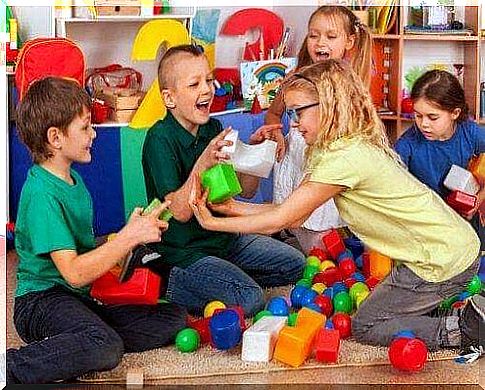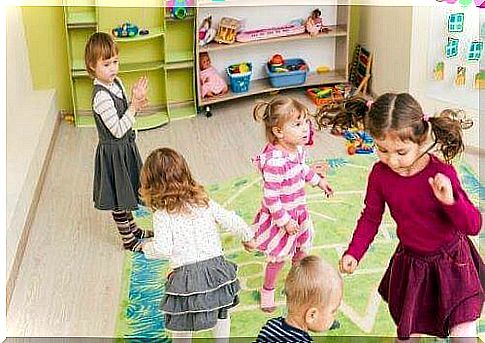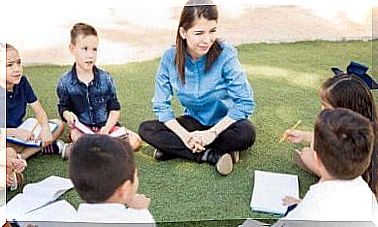Teaching Social Skills To Children

The teaching social skills to children contributes to their emotional health and a good conflict resolution in the little ones. The basis of these competencies are empathy and assertiveness, which are rooted in a deep sense of self-worth.
Most importantly, teachers and parents can help children acquire and improve these social skills. The first step in teaching them social skills is for the adults to put these skills into practice as well.
If you follow the recommendations in our article, you should therefore also rethink your own dealings with other people.
What does teaching social skills include?
It is obvious that children use different ways of interacting with others. Be it at home or in a place where groups of children interact with each other.
Take a few moments each day to reflect with your children about some of our societal challenges. This will make teaching social skills a worthwhile effort.
1. What are social skills and why do we need them?
A good way to introduce children to this topic is to analyze how social skills help improve our collective life.
Depending on the age of the children, you can do this step with the help of games, stories, films or even reading exercises for preschoolers.
2. Select only one skill at a time that you want to introduce
There is little point in introducing a whole range of social skills at the same time. The ideal approach is to choose a skill that you want to focus on at a time. That way, you can then focus your activities or your schedule on that one skill.
For example, take a week to think about “what it means to share something and what others share with me”. This way, what the teacher or parent covers will be more accurately recorded. In addition, each child develops their own way of using these skills.
3. Think carefully about each ability to interact socially
There are several ways to teach children social skills. The key is that it is the children themselves who should think about it for themselves. They should be allowed to express their opinions without judgment.
Good practice is to use a table with two columns. The column on one side lists each social skill, while the other column can list examples of social practices that the children themselves suggest.

4. When teaching social skills, it is important that you practice what you are teaching yourself
Granted, you should adapt the display methods so that they are suitable for every age group. Practicing what you have learned is the best way to really absorb and strengthen social skills. Role-playing and question-and-answer games are excellent resources for this.
5. Take breaks and give time to reflect
Taking a break after learning each social skill will give the children an opportunity to put what they have learned into action. That way, you can reflect together on the way the social skills were used.
It is useful to invite children to reflect on their own behaviors. You can also examine your thoughts individually or together as a group.
In addition, social skills and the ability to negotiate are complex. However , they have a very positive effect on children’s development, including in school lessons.
The imparting of social skills requires a positive self-image and assertiveness
Another aspect used to teach children social skills has to do with the image they build of themselves. Every boy and girl should know how to value and love oneself, and how to defend their rights and interests.
When there is doubt about how to teach self-love, we can summarize the best approach as follows: “Be the best example you can be.”
- It is not helpful to compare children with one another.
- Children need good time.
- Children need different ways to practice their skills.
- Your efforts and strengths should be recognized.
- Their autonomy should be encouraged.
In short, assertiveness and self-esteem have to do with ethical principles, which are about appreciating your rights and recognizing the rights of others. In fact, for very young children, the appreciation of their own rights is usually accompanied by a sudden loud scream that scares the perpetrator.

When children develop social skills, it is good to think about the importance of being assertive and having a positive self-image. Being in control of your emotions requires the ability to be confident. In addition, self-confidence is important in order to resolve, negotiate and convince conflicts.
In summary, imparting social skills to children is also a challenge for adults. Starting this learning process early and from home is the best gift you can give your children.
The core values are that children learn to be autonomous and to have a respectful dialogue. In addition, teaching social skills to children requires careful collaboration to identify, express, and channel their emotions.









